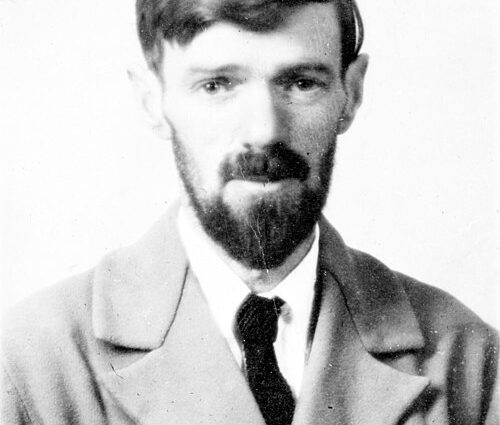D. H. Lawrence (1885–1930) was an English novelist, poet, essayist, and literary critic, best known for his explorations of human sexuality, emotional health, and instinct in an era marked by strict social conventions. Born in Nottinghamshire, England, Lawrence was the son of a coal miner and a schoolteacher, a class conflict that significantly influenced his work. His upbringing in an industrial working-class environment deeply shaped his sensitivity to the tensions between nature and industrialization, emotion and intellect, body and mind.
Lawrence’s most renowned novels—Sons and Lovers (1913), The Rainbow (1915), Women in Love (1920), and Lady Chatterley’s Lover (1928)—delve into the complexities of personal relationships, sexuality, and the inner struggles of his characters. These works often challenged the moral standards of the time, leading to censorship and controversy, especially Lady Chatterley’s Lover, which was banned for its explicit content until a landmark trial in 1960.
Beyond fiction, Lawrence was a prolific poet and essayist, writing passionately about nature, politics, psychology, and society. His unique voice combined lyrical intensity with a critique of modern civilization, often advocating for a return to primal vitality and authentic human connection. Lawrence’s belief in the life of the senses and the subconscious put him at odds with both the industrial age and Victorian morality.
Though often misunderstood in his lifetime, Lawrence is now recognized as a major modernist writer who helped redefine 20th-century literature. His works continue to provoke, inspire, and challenge readers and critics alike.


